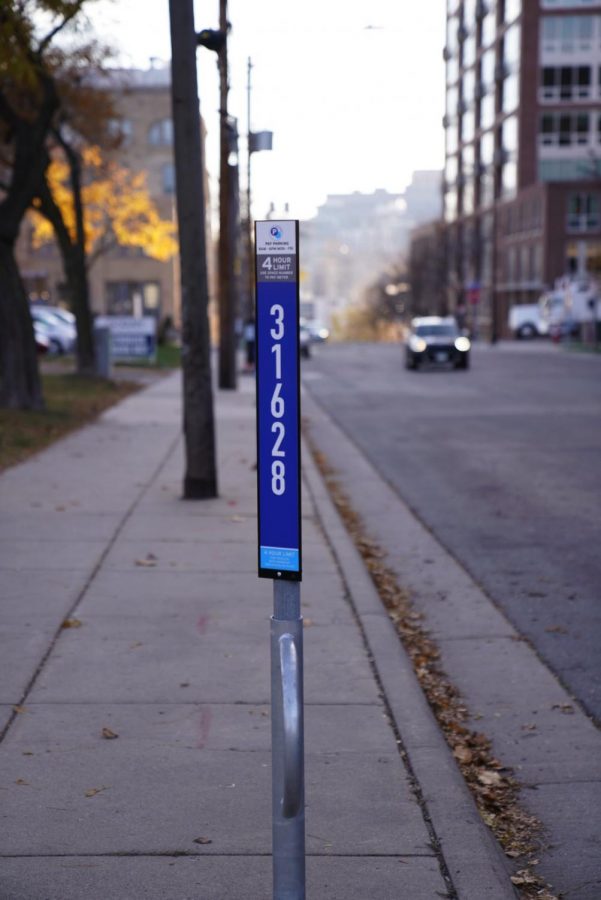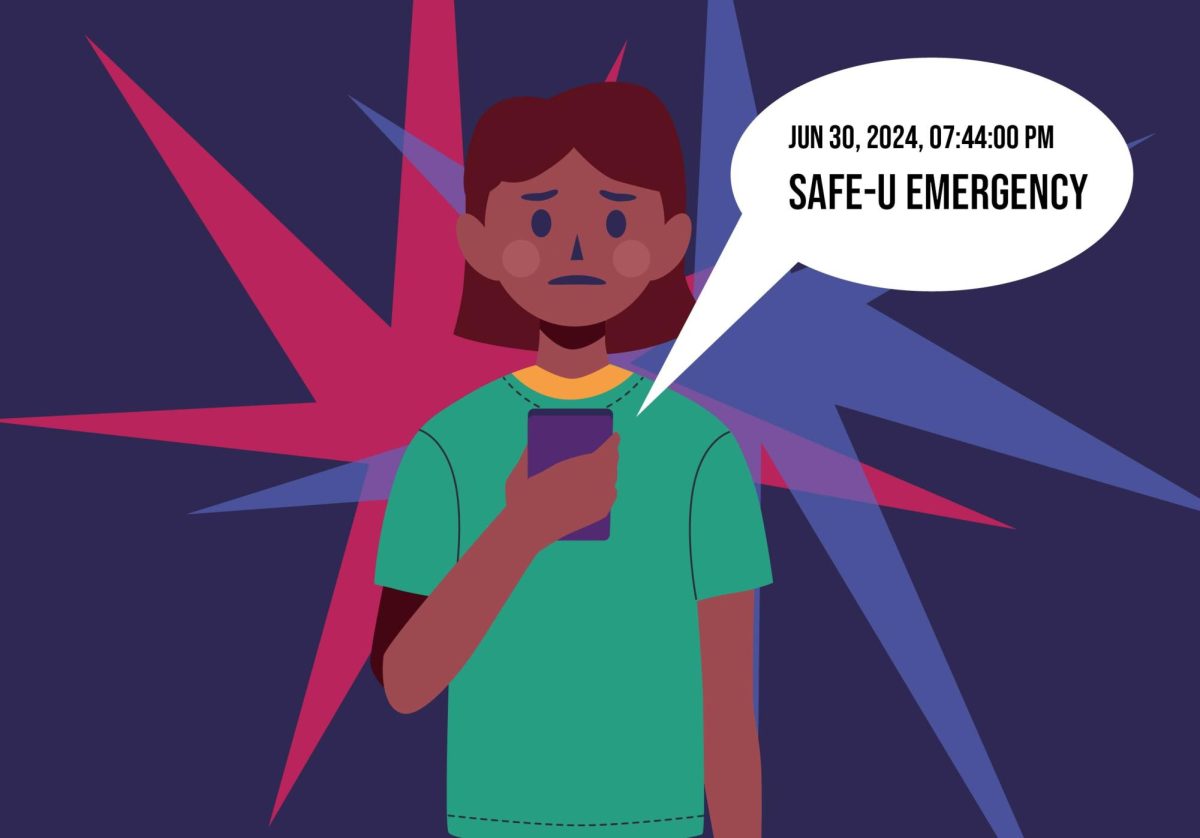As the recent Council of Graduate Students (COGS) meeting on Oct. 14 got underway, there was some tension regarding the speed of University of Minnesota’s leadership to address parking issues, which graduate students say has impacted their work at the University.
COGS representatives discussed issues related to parking that they heard from graduate students and experienced themselves at the meeting. These issues include graduate students seeing a significant reduction of parking spaces, a rise of costs to parking and an increase of time to travel between campuses.
The COGS advocacy group already has an initiative to reestablish graduate and professional student occasional use parking and advocate for free or subsidized on-campus parking for graduate students.
At the July 19 Student Senate meeting with University leadership, COGS speaker Richard Gonigam said he asked about parking irregularities in the graduate program to Myron Franz, who is the University’s senior vice president for finance and operations and member of the Board of Regents.
Gonigam relayed to COGS members that during the meeting Franz was not aware that this was an issue and he had no further comment on the matter.
According to an emailed statement from University’s Parking & Transportation Services (PTS) on July 19, the University collaborated with campus governance leaders, including COGS, to make changes to the parking program for the new year. As a result, the collaboration led to ending the occasional-use program and establishing the Part-time Parking Program (PPP).
”Concerns raised by COGS representatives attending that meeting were addressed, wherever possible, with refinements to the program prior to its launch,” the statement read.
However, COGS members expressed mixed feelings contrasting with the University’s PTS statement.
Gonigam was present at the July meeting and said in an email, “My impression was that this was a case in which the University and administrators had already made significant decisions about the changes to parking without consultation, and that the meeting served more to inform than actually consult.”
Gonigam referred to the changes to parking such as ending the occasional use program, establishing the new PPP and parking rate increases.
The PPP is a program that offers parking passes every year to graduate students on an occasional basis. Another option students can use to secure parking on campus is by entering a lottery each semester, but it is not guaranteed for every student.
Though these options are available, COGS members point out that problems and questions still persist.
Graduate students voice concerns about parking
Katrina Jackson, a COGS member, was the most vocal opponent of University leadership’s non-action to this matter. She said there was visible agreement that the parking issue needs more teeth for the leadership to take this more seriously.
Last month, Jackson sent a survey to graduate students to generate interest and collect stories that would help move the issue along. She added that the survey results show parking is not an issue about convenience for a certain group, and the parking issue could affect non-graduate students as well.
Jackson is also a fifth year doctoral student in the Department of Microbiology and Immunology in the graduate program of microbiology, immunology and cancer biology (MICaB).
As the COGS representative of MICaB, she spoke with some of her constituents within the graduate program and asked them for some details of their experiences with parking.
One of the stories collected in the survey was from Marissa Oram, a Ph.D. Candidate in Comparative & Molecular Biosciences, describing her experience about how fraught it is for PTS to make changes in such a broad manner.
Oram’s emailed comment said during the pandemic, her department provided a free parking pass to the Washington Avenue Ramp located near her graduate department, which helped.
“This made getting to work very convenient and was especially appreciated because I was in my third trimester of pregnancy. Post-pandemic, this free parking pass was taken away [because the pandemic-related free parking program ended], so I went back to my old methods of transportation,” she said in an email.
This fall semester, Oram said in an email she only had two choices. “I would either walk to the Stadium Village Station, then take the light rail into the East Bank stop (not preferred since the light rail can be packed at certain times on the campus stops – I have an unvaccinated infant at home so [I’m] trying to limit exposure to the general public).”
“On the other hand, I could walk ~15 min to MCB, or put my bike on the back of my car and bike the rest of the way in (much faster than walking). Parking farther away adds about 15 minutes to my morning commute and is rather expensive considering our low stipend/pay as graduate students (who are also employees),” Oram said in the email.
She mentioned that she entered the lottery but did not get selected, and this made matters worse as she now had an infant that would need daycare.
“To make a long story short, I emailed parking and transportation about how that is ridiculous considering graduate students are not just students, they are employees that work full-time (unlike undergraduates), so we should be offered a parking contract so we can get to work,” Oram said. “They basically just folded and gave me a parking spot in Ski-U-Mah.”
Jackson reiterated what Oram said regarding the role of graduate students and the need for an equitable parking policy.
“My job at this point [is] to graduate [and] for me to come to campus and do research in my lab. And if I can’t get to campus, I can’t do my work and I can’t research and I can’t graduate,” Jackson said. “Also with the way my experiments work, [I work] on every single weekend as well, so I would be paying not just weekday rates, but also weekend rates. And that money adds up if you don’t have a contract.”
Jackson added that respondents to her survey said a lack of consistency and flexibility are additional barriers to parking.
“My entire income is my stipend because I signed a contract with the University saying I will not get a side job. This is all I have. So if I’m paying, like right now, it’d be $120 a month just to park. And that’s my grocery budget for the month,” Jackson said. “So I’m paying my grocery budget, just to park on campus.”
Parking & Transportation Services responds
Many graduate students said this is an issue, and a complicated one that involves many entities on campus. PTS said they have addressed the graduate students’ needs as much as they could during this last period.
“Many students, undergraduate and graduate, have student employment that serves the mission of the University and we work to meet the needs of them all within the larger campus community capacity,” a follow-up email with PTS stated.
Currently, some access preferences do exist. Once graduate students have a parking contract for fall semester, they may renew it for spring and summer without going through the lottery process. Additionally, they have access to the PPP, which is not available to undergraduate students.
A follow-up email to the Daily said the contract system verifies whether a student is a graduate student or undergraduate student, and confirms housing status to determine if the student is a commuter or not. The system does not have the ability to determine the student’s role as a teaching assistant or research assistant.
“The University employs over 30,000 faculty, staff and students and seeks to provide a comprehensive program of transit and parking options to broadly meet the needs of the community. Though we are unable to meet the preferences of every individual, we believe that the overall program does provide choices for individuals,” the follow-up email from PTS read.
Correction: A previous version of this story misrepresented the relationship between the occasional-use parking program and the pandemic-related free parking; these are two separate programs. The pandemic-related free parking ended on Aug. 31.





















